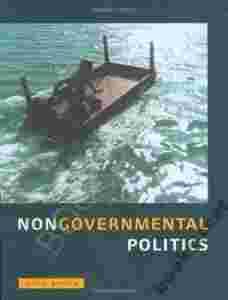|
To be involved in politics without aspiring to
govern, without seeking to be governed by the best
leaders, without desiring to abolish all forms of
government: such is the condition common to
practitioners of nongovernmental politics. Whether these
activists concern themselves with providing humanitarian
aid, monitoring human rights violations, protecting the
environment, educating consumers, or improving the
safety of workers, the legitimacy and efficacy of their
initiatives demand that they forsake conventional
political ambitions. Yet even as they challenge specific
governmental practices, nongovernmental activists are
still operating within the realm of politics.Composed of
scholarly essays on the challenges and predicaments
facing nongovernmental activism, profiles of unique and
diverse NGOs (including Memorial, Global Exchange, World
Vision, and Third World Network), and interviews with
major nongovernmental actors (Gareth Evans of
International Crisis Group, Anthony Romero of the ACLU,
Rony Brauman of Medecins sans Frontieres, and Peter
Lurie of Public Citizen, among others), this book offers
a groundbreaking survey of the rapidly expanding domain
of nongovernmental activism.It examines nongovernmental
activists' motivations, from belief in the universality
of human rights to concerns over the fairness of
corporate stakeholders' claims, and explores the
multiple ways in which nongovernmental agencies operate.
It analyzes the strategic options available and focuses
on some of the most remarkable sites of NGO action,
including borders, disaster zones, and the Internet.
Finally, the book analyzes the conflicting agendas
pursued by nongovernmental advocates--protecting civil
society from the intrusions of governments that lack
accountability or wresting the world from neo-liberal
hegemony on the one hand and hastening the return of the
Savior or restoring the social order prescribed by the
Prophet on the other. |
|

